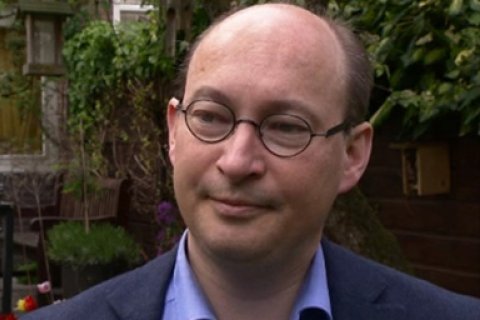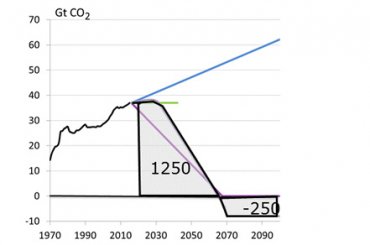Utrecht as a role model for demand-driven sustainability research
Interview with Detlef van Vuuren

As a university, we need to join forces even more, says professor Detlef van Vuuren of Utrecht University. This way, not only will we be able to conduct more demand-based research, but we will also strengthen our position as one of the leading sustainability research institutes.
Breaking out of dogmas
The objective of Pathways to Sustainability, one of Utrecht University’s four research themes, is to break out of the dogma of ‘supply-driven research’, i.e. research from the inside out, and to use social issues as a starting point, i.e. thinking from the outside in. This is particularly important in sustainability research with its considerable impact on society, says Detlef van Vuuren,
Professor of Integrated Assessment of Global Environmental Change at Utrecht University and senior researcher at the Netherlands Environmental Assessment Agency (PBL, Planbureau voor de Leefomgeving).
From the outside in
“At universities, a lot of sustainability research often is still being conducted from the perspective of further deepening sectoral research,” says Van Vuuren. “Luckily, this is starting to change thanks to Pathways to Sustainability. The integration of research groups and overarching themes is breaking down barriers. This is necessary, because as scientists we traditionally have learned to define social questions in such a way that we can answer them scientifically but not socially. I also work at the Netherlands Environmental Assessment Agency, where social questions always come first. From that perspective, we look for the knowledge to answer those questions, even if it means we must go beyond the boundaries of disciplines. That is what makes the research both socially relevant and scientifically innovative.”
Combining forces
Since Van Vuuren works at both the PBL and Utrecht University, he can see and even combine combine the forces of these two institutes. “I think the combination works very well,” he says. “The PBL is in a great position to use social issues as a starting point for its work, and it is very easy to organise collaborations. Here at the university, it’s nice to have the time and space to be able to immerse yourself in the academic side of an issue and to answer a question from a sound scientific basis. Both I and my PBL and university colleagues embrace this collaboration.”
Sustainability issues are central
The PBL isn’t the only institute which has a strong focus on demand-driven science; the Stockholm Resilience Centre (SRC) uses a similar approach. Van Vuuren sees this organisation as a good example to follow. “The sustainability issue is central there. The SRC has proven that it can also achieve excellent academic results with many publications in leading journals. So, the work they are doing is both socially and scientifically relevant. But we have more departments, broader knowledge and more people and I think that if we combine our efforts we can be better than the SRC."
Integrating knowledge
“As part of Pathways to Sustainability we are carrying out research in different hubs, but it would be even better if we could add an integration hub and I would love to contribute to that. I don’t think we should see the hubs as being stand-alone entities. The food problem can’t be seen in isolation from climate change: the agriculture sector is responsible for 20-30% of global greenhouse gas emissions. And, for example, the cultivation of biomass for bioenergy is linked to all themes. If we integrate the knowledge within the hubs and conduct much more targeted demand-driven research, I think that within eight years’ time we will be the leading institute in sustainability research. Then, if you ask someone in Stockholm: ‘What inspires you?’, the answer will be: ‘Look at what’s going on in Utrecht.’”
Related articles

What will happen if Trump withdraws from Paris Agreement
'From an economic perspective, this would be unwise', says Detlef van Vuuren. How would he convince Trump to adhere to the agreements laid down in the Paris Agreement?

Projections as a science
In his inaugural address Prof. Dr. Detlef van Vuuren discusses the potential of assessing future developments.

